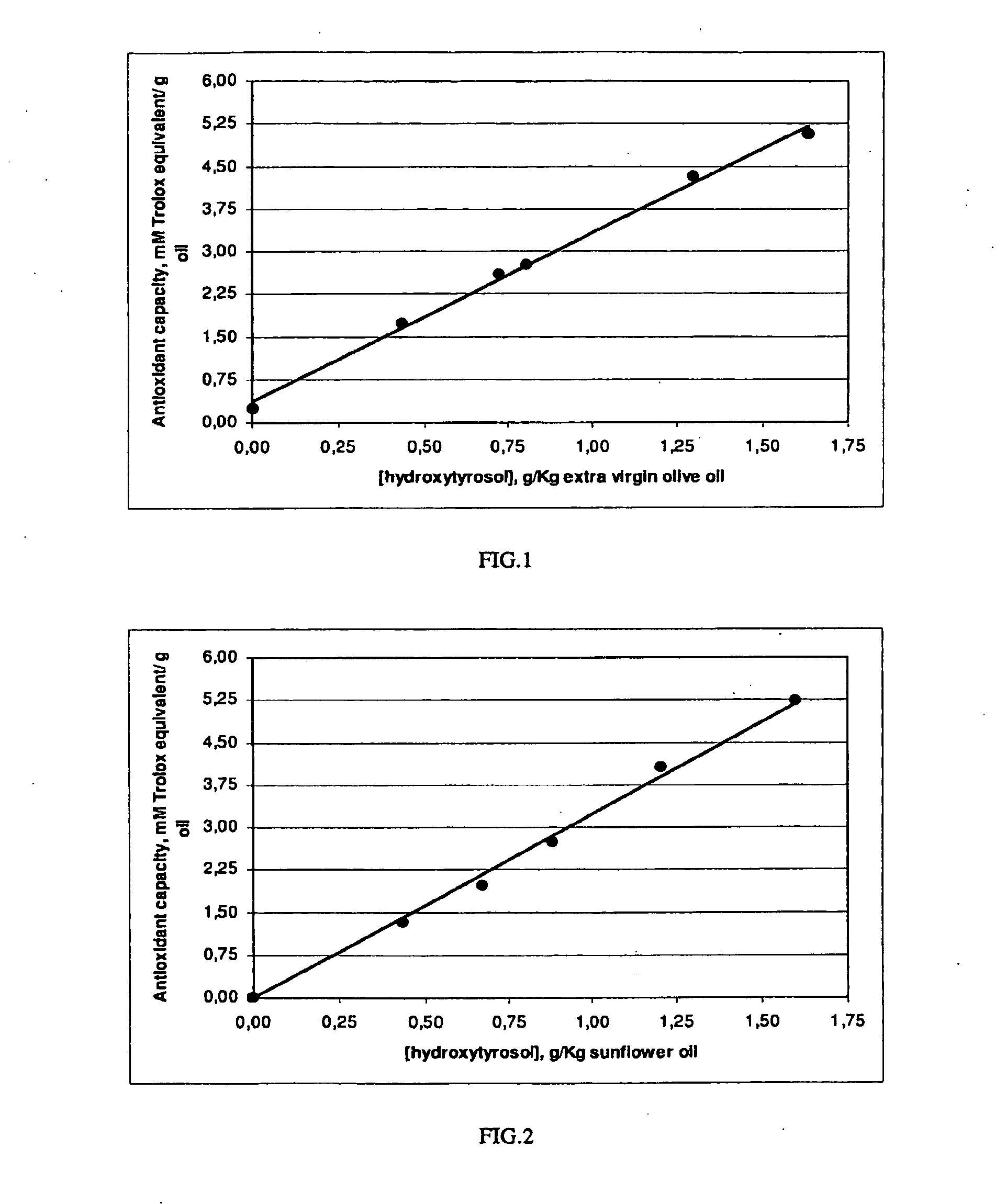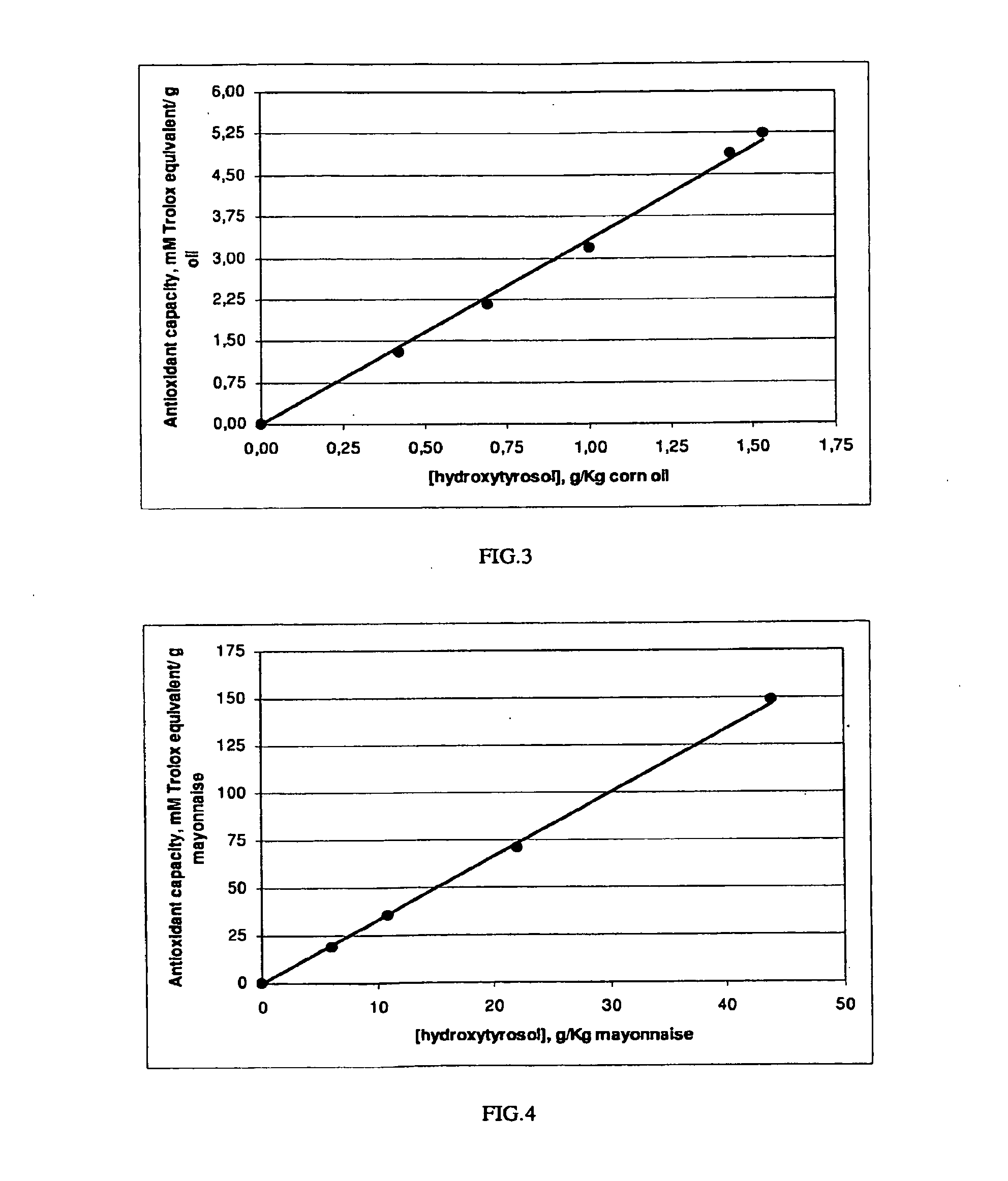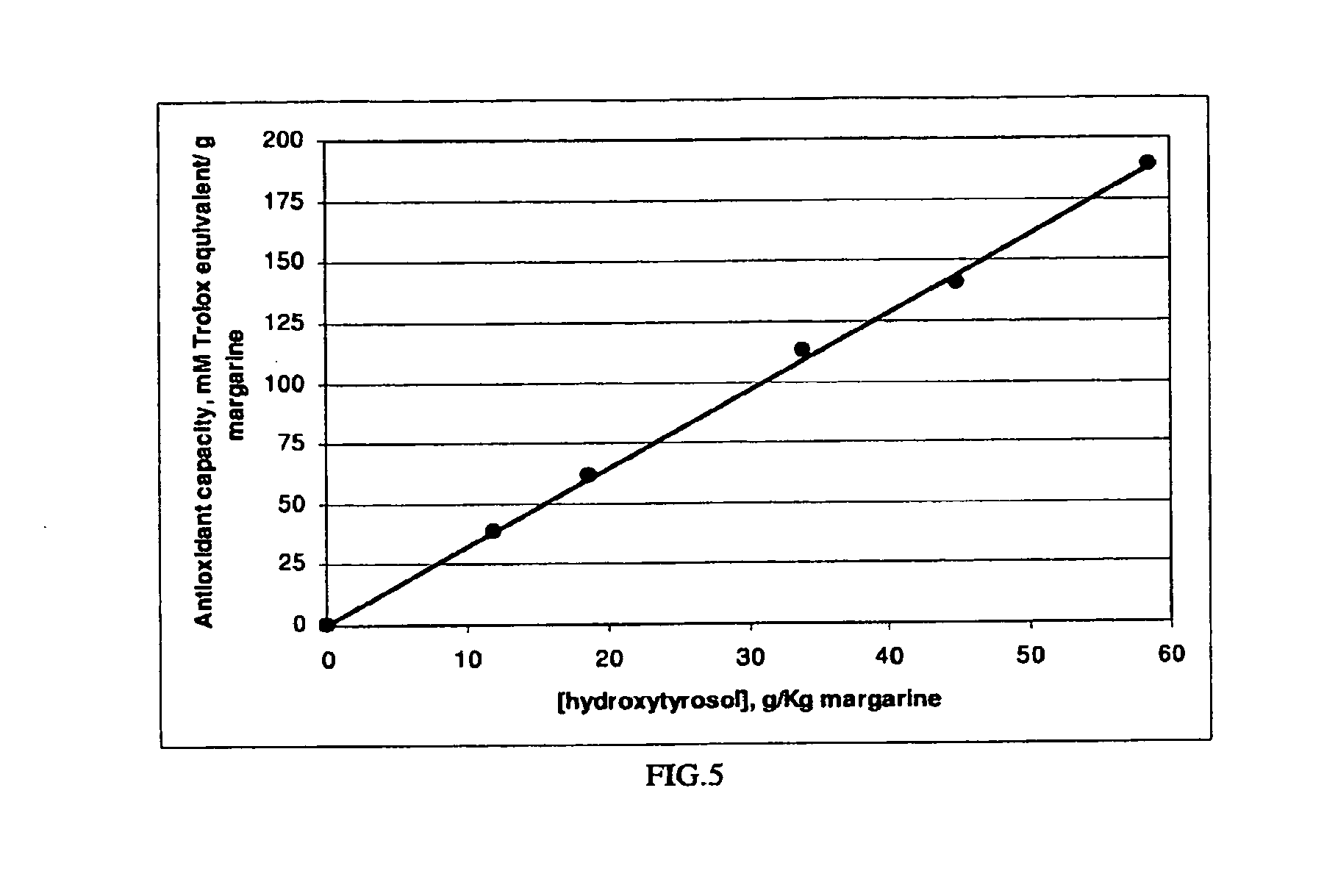Fortification of nutritional products with olive extracts containing hydroxytyrosol and hydroxytyrosol fortified nutritional products
a technology of olive oil and nutritional products, applied in the direction of anti-noxious agents, drug compositions, metabolic disorders, etc., can solve the problems of heart attack, heart attack, and other symptoms, and achieve the effect of avoiding non-pleasant alterations of organoleptic properties
- Summary
- Abstract
- Description
- Claims
- Application Information
AI Technical Summary
Benefits of technology
Problems solved by technology
Method used
Image
Examples
example 1
Olive Extracts Production from Olives Fruits
[0088]25 Kg of a sample of olives fruits are mixed with 50 L of demineralised water. The obtained mixture is blended for a few minutes, and then 636 g of sulphuric acid (98%) were added. The obtained mixture is kept in autoclave at 15 psi (over the atmospheric pressure) for 30 minutes at 121° C. After that, the aqueous phase is separated from the solid residue, by filtering on a filter. The solid phase, retained on the filter, is washed with 12.5 L of demineralised water, and the water coming from this washing operation is collected with the aqueous phase previously recovered. The aqueous phase, approximately 56 L, is then centrifuge refined to eliminate solid particles passed through the filter. After solid elimination, 52 L of crude aqueous extract, containing 141 g of hydroxytyrosol, with a HPLC purity of 50.5%, are obtained.
[0089]Then, crude aqueous extract, is loaded on a chromatographic column containing an acid activated ion exchang...
example 2
Preparation of Olive Fruit Extract Powder by Spray-Drying
[0092]A sample of 260 ml of purified olive extract in liquid form containing 19.5 g of hydroxytyrosol obtained according to Example 1, is slowly stirred with 58 g of maltodextrin previously dissolved in 260 ml of demineralised water. For example, potato maltodextrin may be used. A peristaltic pump is used to feed the spray-dryer, which is previously equilibrated with an inlet air temperature of 150° C. The feeding speed is adjusted in order to obtain an outlet air temperature which is less than 100° C. 76 g of a white powder, with a moisture of 5.4% (Karl Fischer) and a hydroxytyrosol richness of 21.9% (w / w), are obtained.
example 3
Preparation of a Fortified Extra Virgin Olive Oil with Olive Fruit Extract
[0093]A sample of purified olive extract in liquid form containing a concentration of 40.6% (w / w) hydroxytyrosol obtained with a process according to Example 1, is selected for the fortification of a extra virgin olive oil. 6 samples, 400 g each, of such extra virgin olive oil were prepared. Increasing quantities of olive extract in liquid form are added in the weight ratio desired to the extra virgin olive oil and completely mixed, under very controlled parameters of temperature and agitation during 1 h. After that, stirring was switched off and mixture was filled into a decantation funnel and let settle down for 72 h. Then, the olive extract in excess has formed a bottom layer that is separated from the oil top phase to obtain the fortified extra virgin olive oil.
[0094]Straight afterwards, an aliquot of every one of the 6 samples of fortified extra virgin olive oil were used to measure antioxidant capacity (...
PUM
| Property | Measurement | Unit |
|---|---|---|
| temperature | aaaaa | aaaaa |
| temperature | aaaaa | aaaaa |
| temperature | aaaaa | aaaaa |
Abstract
Description
Claims
Application Information
 Login to View More
Login to View More - R&D
- Intellectual Property
- Life Sciences
- Materials
- Tech Scout
- Unparalleled Data Quality
- Higher Quality Content
- 60% Fewer Hallucinations
Browse by: Latest US Patents, China's latest patents, Technical Efficacy Thesaurus, Application Domain, Technology Topic, Popular Technical Reports.
© 2025 PatSnap. All rights reserved.Legal|Privacy policy|Modern Slavery Act Transparency Statement|Sitemap|About US| Contact US: help@patsnap.com



